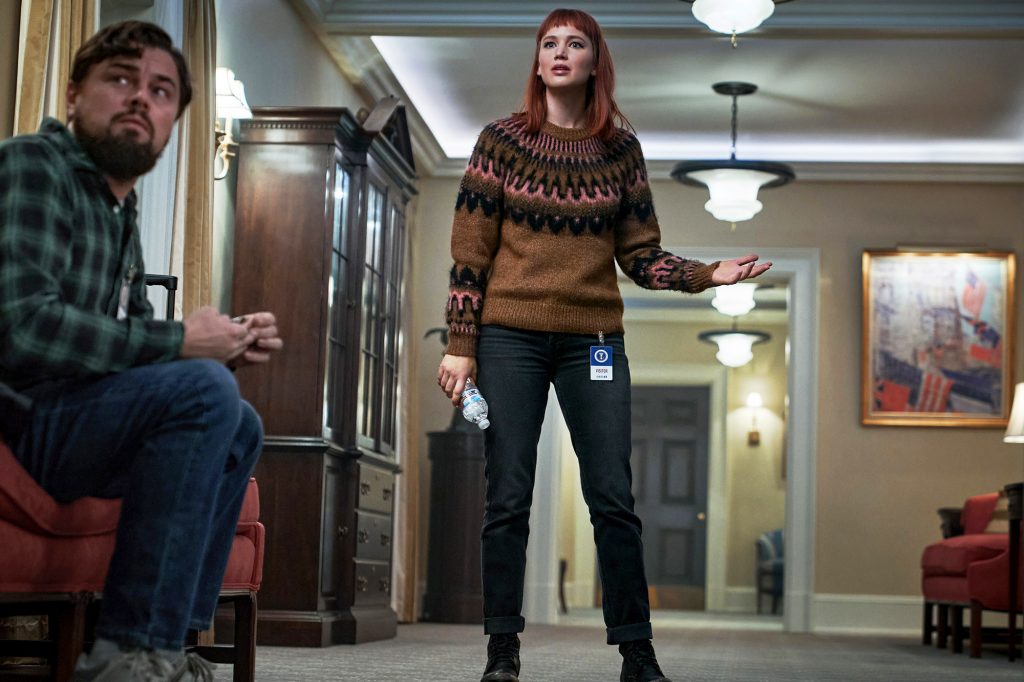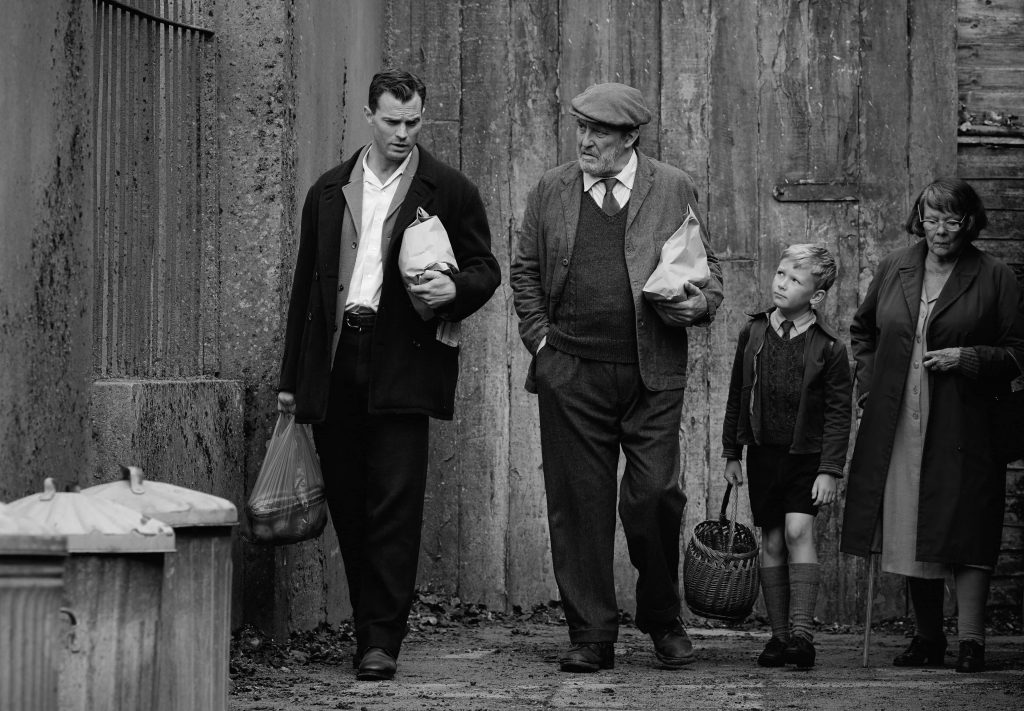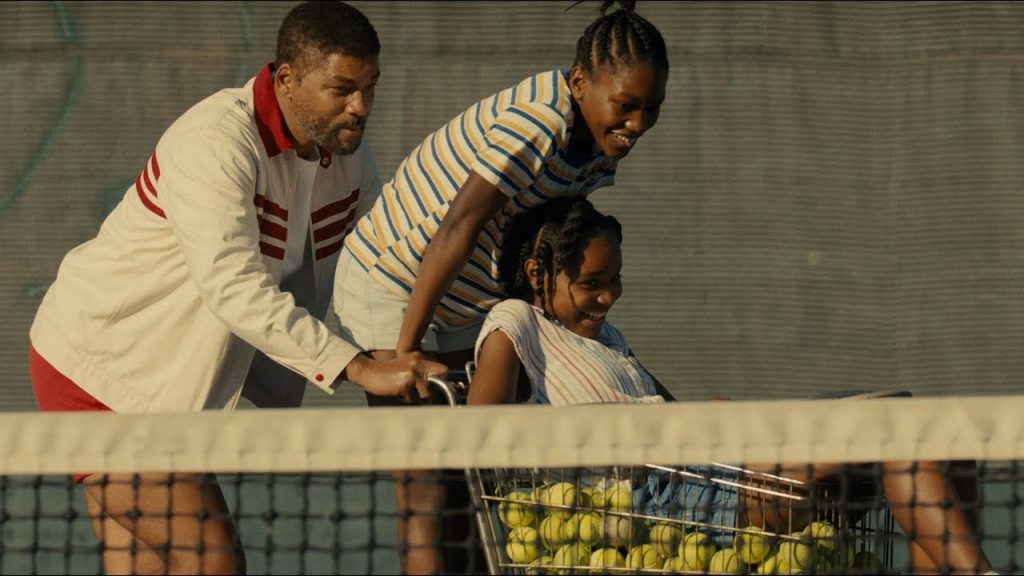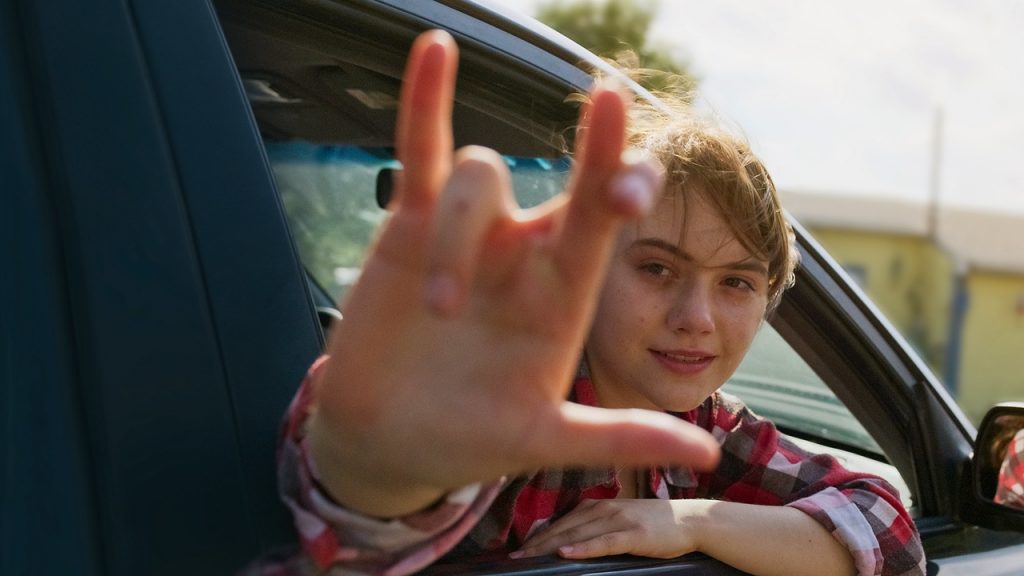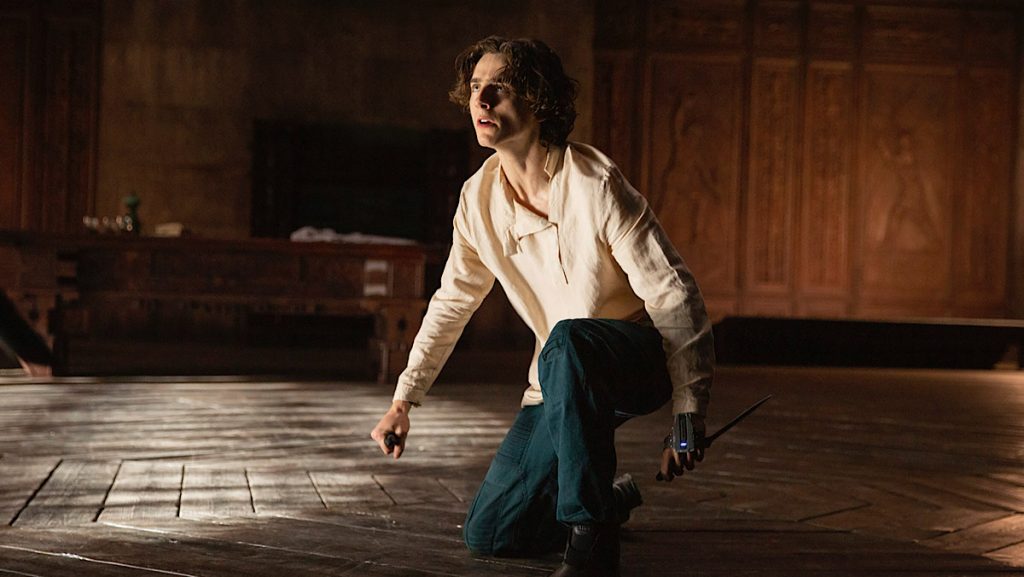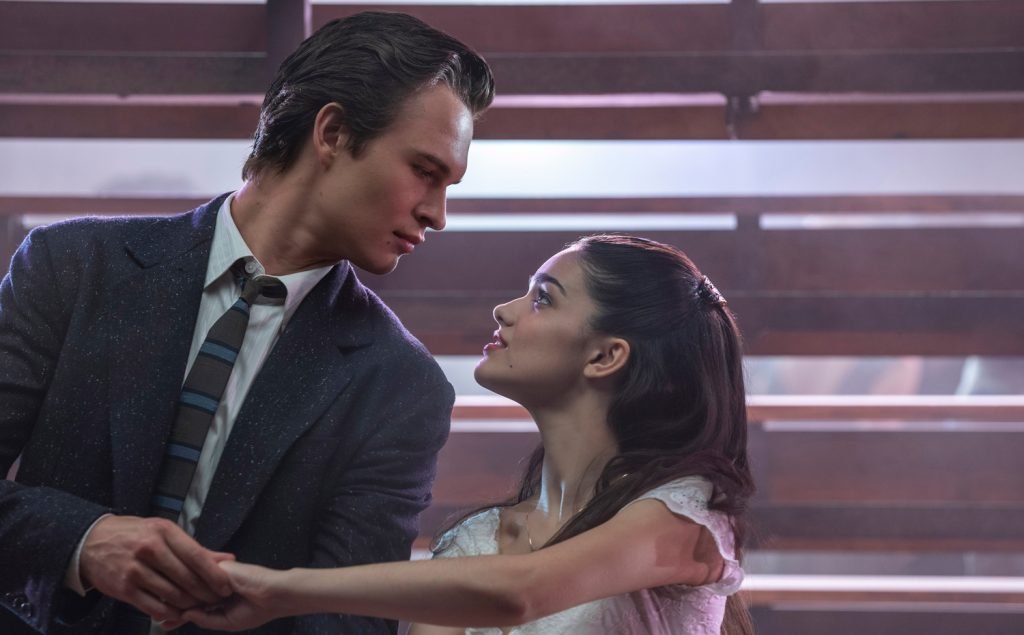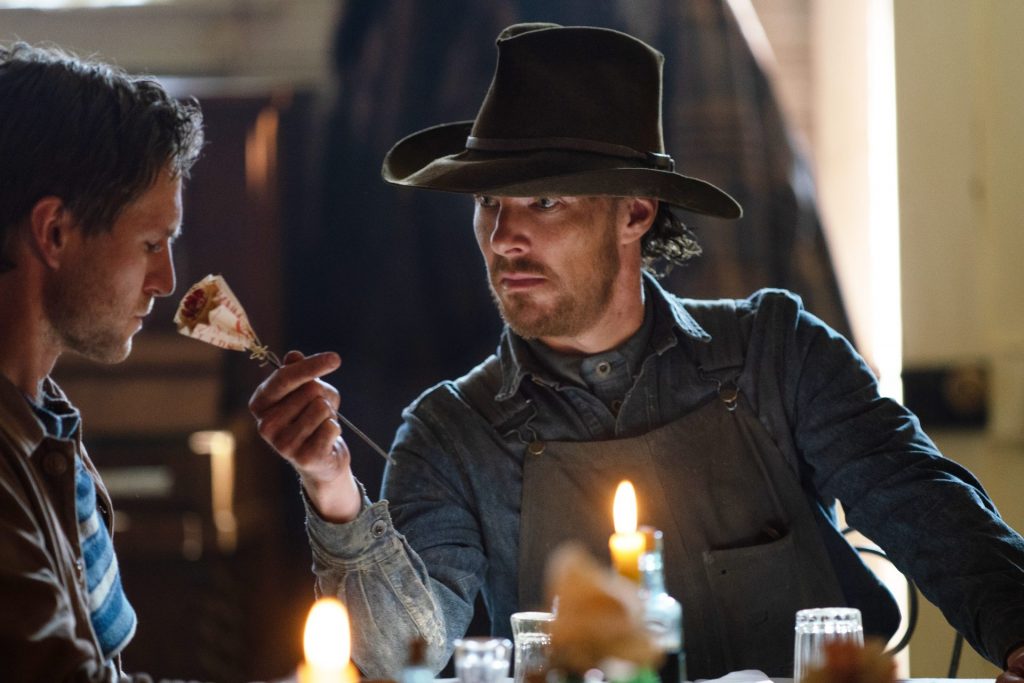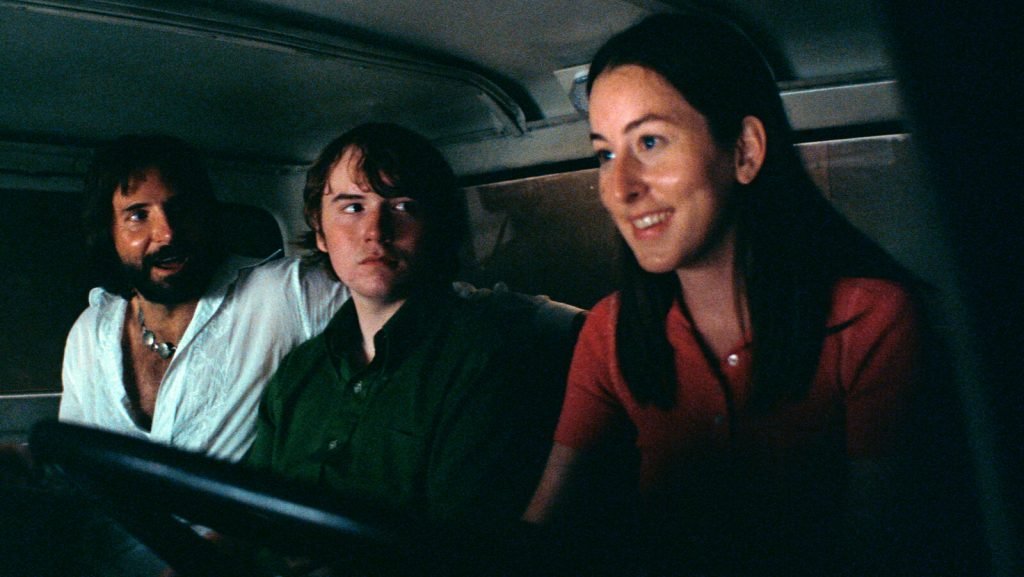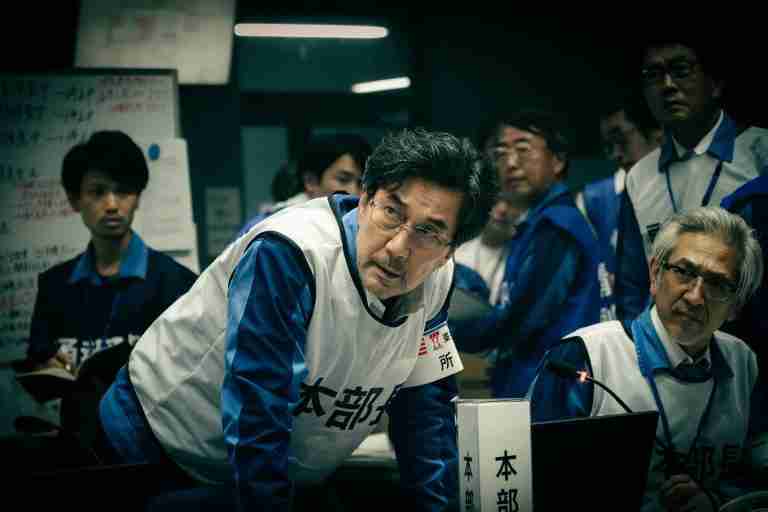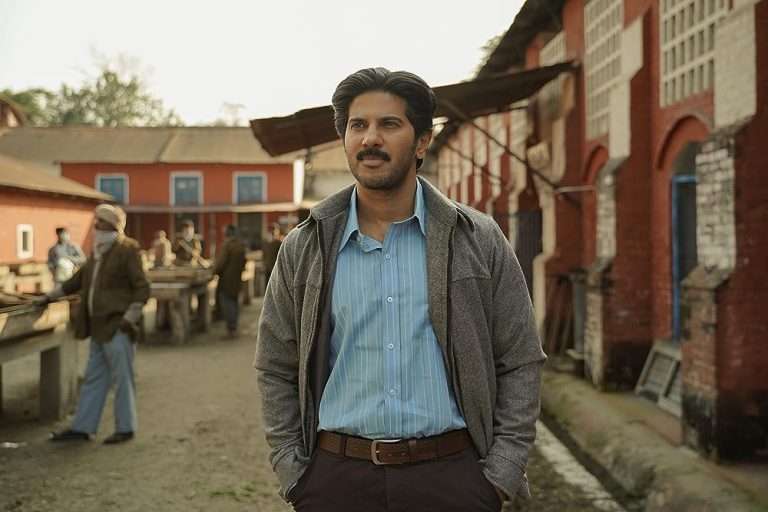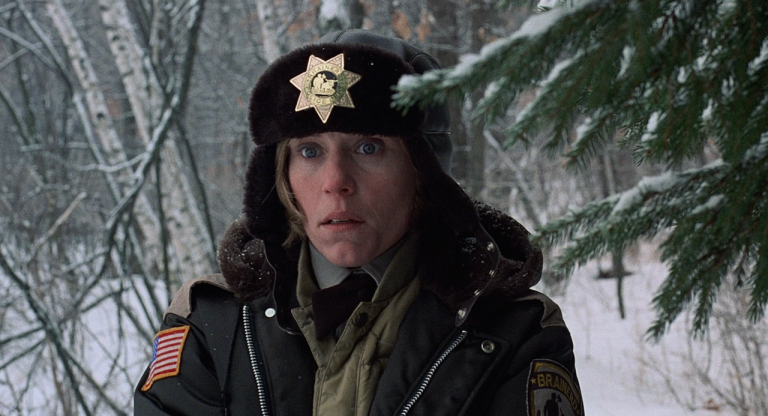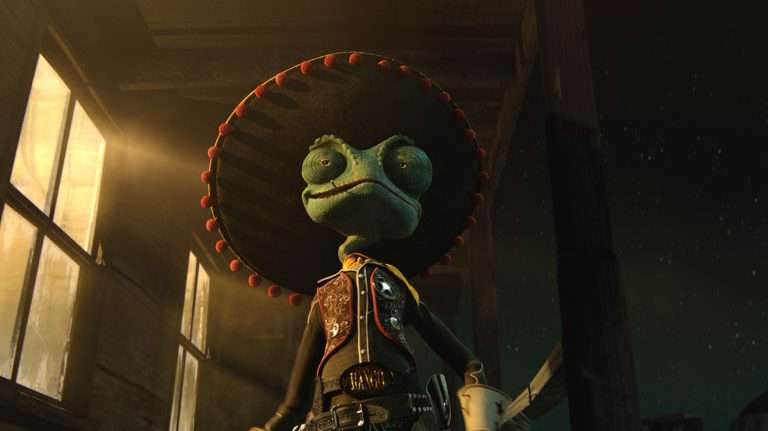The 94th Academy Awards: All Best Picture Nominees Ranked From Worst to Best
Well, it’s that time of year again. With each of the major film award ceremonies over and done with, the 94th Academy Awards will surely be upon us very shortly. And, of course, with this year’s slate of nominees, the Academy has maintained their time-honored tradition of providing their viewership, and even their voters, with an equal blend of predictability, surprise, gratitude, and resentment. It’s not as if one can ever expect things to go any other way, especially when it comes to the Best Picture category. After all, how can anyone ever be expected to develop a definitive list of ten films that best represent an entire year’s worth of filmmaking achievements?
This year saw plenty of great films that unfortunately were unable to make the cut, some of which were (let’s be real here) shut out in favor of works that simply shouldn’t have been included in the conversation at all. From streaming favorites like tick, tick…BOOM, C’mon C’mon, and The Tragedy of Macbeth, to international darlings like The Worst Person in the World, Petite Maman, and Titane, it’s clear that there is still room for the Academy to try a bit harder if they hope to achieve a great lineup akin to the one they managed to compile at their 92nd ceremony two years ago. Alas, here we are, and with nowhere left for these nominees to run in order to either escape consternation or relieve the overwhelming adoration thrown their way, it’s time to rank all of this year’s Best Picture nominees from worst to best.
Please note that this ranking is not a reflection on their likelihood of winning the award, but is rather a subjective ordering based on personal feelings of quality and the overall viewing experience.
10. Don’t Look Up
Listen, not all of us wanted to invite this one to the party. It just kinda forced our hand a little bit. If nothing else, the Academy’s decision to nominate Don’t Look Up for their most prestigious award, amidst four total nominations, has all but confirmed the influence of cultural impact and audience response when casting a voting ballot. It’s been one of the most viewed and widely discussed films since the beginning of the COVID-19 pandemic, providing Netflix with one of its two places in the Best Picture lineup and ensuring the streaming giant’s prevalence for many years to come. Not to mention, the presciently delicate subject matter at the heart of its apocalyptic narrative would certainly provide it with a decent case as one of the award’s more culturally relevant would — God knows how frequently the Academy forsakes this quality as quickly as they recognize it.
Unfortunately, the presence of such a sizable film as Don’t Look Up at the Oscars is far less synonymous with the clean sweep of the inescapably unforgettable The Lord of the Rings: The Return of the King (2003), and more so with the infuriating ignorance that somehow didn’t prevent the likes of Bohemian Rhapsody (2018) and Joker (2019) from taking home a few statuettes of their own. In fact, Adam McKay’s satirical call-to-action for climate change awareness makes for such a baffling experience that you can just sense how much deeper its message would have sunk in, and how many more nominations it could have received, if it even remotely resembled a good film. With McKay so clearly failing to differentiate that which he deems necessary from what is actually necessary and dishonoring what’s left with some painfully unearned humor, he ironically mimics the very individuals he hopes to critique by serving up his own vague agenda for two-and-a-half hours. One’s fondest hope can only be that a film like Don’t Look Up actually encourages someone to make a change. It wouldn’t make it a better movie, but at least McKay’s impatience might feel a bit more identifiable.
Related to Best Picture Nominees Ranked: 9 Films to Watch If You Liked Don’t Look Up
9. Belfast
When it came to enjoying Belfast, all I can say is — and I mean this sincerely — I really tried. Based, in large part, on writer-director Kenneth Branagh’s own experiences growing up in the titular Northern Ireland capital during the Troubles of the late 1960s, a period of great civil unrest as tensions between Catholics and Protestants remained at an all-time high, it lends itself to a more personal touch from Branagh than is likely to be found in any of his Shakespeare or Agatha Christie adaptations. In fact, one of the more redeeming qualities of the film is the way in which it captures Branagh’s deeply rooted appreciation for cinema from a very young age, as some of its most visually resplendent scenes are found when his stand-in, nine-year-old Buddy, visits “the pictures” and the black-and-white cinematography is suddenly and cleverly juxtaposed with the original color and lighting of the films they view. Not only does the viewer get the sense of a man who used his love for the moving image as the purest form of escapism from the tumult of his surroundings, but also of how he embraced the actions of his on-screen heroes in order to see the best in his family, who are brought to life by a well-matched ensemble.
Nevertheless, Belfast ultimately concludes its swift hour-and-a-half runtime as a lot less meaningful than it certainly could have been because Branagh remains strangely distanced from the final result when exploring both the dynamics of the family at-large and the sociopolitical ramifications of The Troubles. The film, as a whole, risks very little narratively and, as a result, reaps very little of the reward visually, with the decision to desaturate the urban landscape playing out more like a cheap contrivance rather than a profoundly effective creative choice. Moreover, it plays out, quite simply, like a film engineered in a lab for the sole purpose of winning awards. Its unquestionable sincerity and limited technical achievements are largely designed to distract from whatever thinness a lackluster script is unable to account for. This breed of film makes regular appearances at awards ceremonies, as evidenced by Belfast’s seven nominations from the Academy and its towering eleven from the Critics Choice Association, but this type of recognition doesn’t indicate acclaim toward great filmmaking so much as passive interest in competent filmmaking that voters will only eat up because they feel morally obligated to.
8. Nightmare Alley
Another movie doused in two-and-a-half hours’ worth of directorial self-indulgence, but in a way that feels slightly more justified, the inclusion of Guillermo del Toro’s adaptation of William Lindsay Gresham’s novel in the awards conversation was a surprise to many, given its significantly more divided response than agreeable del Toro standards like Pan’s Labyrinth (2006), along with the public’s general disinterest in it — it’s kind of hard to stand out when a little movie called Spider-Man: No Way Home (2021) is taking the world by storm. Then again, it’s not as if Nightmare Alley needed a cultural behemoth to compete against in order for it to fade into irrelevance. It does this largely on its own merits, or lack thereof. Though del Toro’s decision to recapture Gresham’s story of a wayfarer-turned-carnie-turned-con-artist slowly paying the price for his unwieldy ambitions in World War II-era Chicago sounds ingenious on paper, Nightmare Alley hoodwinks the viewer into thinking that the ultimate payoff will be more consequential than it turns out to be.
It wouldn’t be too much of a stretch to call the film a tragedy, though this has less to do with the downward trajectory Stanton Carlisle (Bradley Cooper) finds himself heading toward, and more so with the fact that the film’s finer visual elements never quite account for how aimless Stan’s transformation comes off as. Per his greatest talents, del Toro has fashioned yet another world that very much feels lived in, yet, despite how committed the rest of the impressive cast is to flesh out their respective characters, he fails to provide those living in it with the kind of complexity that would otherwise give viewers a desire or reason to inhabit it themselves. Even with Cooper ably going toe-to-toe with Cate Blanchett’s Lilith Ritter, the enigmatic psychologist who is tempted by Stan to take an offer neither of them can refuse, neither of them can fully provide the film with a much-needed axis upon which to rotate. While it would be quite unfair to say that a chance to venture into del Toro’s mind of all places isn’t entirely worth the chaos, Nightmare Alley ultimately offers few thematically enriching curveballs to provide Stan’s rise and fall with much urgency, settling for predictability too early on and leaving the viewer in an unearned stasis when guidance is all the more necessary.
Related to Best Picture Nominees Ranked: Nightmare Alley (2021) Movie Explained: Ending and Themes Analyzed
7. King Richard
Though it is shockingly the lone biographical film of the bunch, the love given to King Richard by various awards circles this past year is merely the latest bit of evidence that the film industry’s governing bodies cannot get enough of biopics; the heavy indication that this may finally be Will Smith’s year to take home Best Actor at the Oscars has only exacerbated this notion. After all, the ratio of biographical performances to Academy recognition is a bit staggering, and the proof is in the details: this year alone, eight of the twenty acting nominees portrayed real-life figures. Though King Richard has perhaps been the most bombastic and unapologetic film of this year’s nominees in the way its campaign has championed its lead actor’s performance as the patriarch of professional tennis’s most famous family, Smith’s turn as Richard Williams, the father of Venus and Serena Williams, is indeed something to celebrate, as it’s not only his best performance in years but also elevates the film significantly above the many trappings that would have otherwise left it as another run-of-the-mill sports drama in a crowded field of films that have done it better.
The proven issue with sports biopics is their frustrating sense of inevitability. When given the challenge of determining when and how to best tell the story behind a particular moment in sports history, many filmmakers simply opt not to, often reveling in the glory of their films’ fateful climaxes while spending the preceding time pandering to the viewer, whether it be through sluggish pacing (Chariots of Fire (1981), anyone?), misguided sentimentality (here’s lookin’ at you, Blind Side (2009)), or a lethal combination of both. King Richard can’t hope to compete against classics of the subgenre like Raging Bull (1980) or Moneyball (2011), but it largely succeeds by making the thrill of its enticing tennis sequences an afterthought. Opting instead for an enjoyable, if not always well-paced, look at fatherhood, family, and the link between fame and race, the film never fails to convince us that Williams is a family man through and through and that his behavior is all in the name of giving his talented daughters the kind of opportunities his father never gave him. It can’t help but worship Williams even as his abrasive personality often makes him the least tolerable person in the room, but this is just one of many reasons to be amazed as Smith delivers a more layered and grounded performance than we have expected from him after years of being typecast as the hero.
6. CODA
Though not quite as empathetic and comprehensive as last year’s similarly-themed Sound of Metal (2020), which has already become an underappreciated masterpiece despite taking home two awards at the Academy’s previous ceremony, CODA is nevertheless a warm and life-affirming domestic dramedy that shines a light on a different, yet equally misunderstood facet of the deaf experience, even if the story as a whole is a bit too formulaic for its own good. Following high schooler Ruby Rossi (Emilia Jones) as she navigates her senior year and struggles to follow her musical passions while also being the only hearing member of her deaf family, the serious subject matter lends itself to a refreshing bit of lightheartedness, knowing precisely when to treat the communicative difficulties of it with grace and when to allow its deaf actors, especially the seasoned Marlee Matlin and Troy Kotsur, to convey their good-natured humor toward it in earnest.
CODA has been quietly staking a claim over this year’s awards season since its initial run at Sundance, at which it was instantly acclaimed and swept four of the festival’s major awards, including the highly coveted Grand Jury Prize. As a coming-of-age film, it can’t resist leaning into a few trappings of the genre — the romantic subplot between Ruby and one of her fellow choir members certainly doesn’t add much to the film’s progression — but it never lets these pitfalls dampen the unabashed love it has for the Rossi family. Rather than portray their circumstances as something bound to sequester them, writer-director Sian Heder instead captures their silent experience as something that endears and ingratiates them to the small fishing community of Gloucester, Massachusetts. But it’s the ethical dilemma at the heart of the film that rings the truest, as Ruby must decide whether to finally do something for herself or stay true to her family at a time when they need her more than they ever have. In a Best Picture field crowded with films whose emotional beats remain largely hidden beneath layers of subtext, it’s comforting to know that at least one nominee not only wears its heart on its sleeve but wears it well and wears it proudly.
Related to Best Picture Nominees Ranked: Download the Script of CODA (2021)
5. Dune
Even in the midst of receiving ten total nominations, all but solidifying its heavy odds of taking home a king’s ransom in technical awards despite a notable miss for Denis Villeneuve in the Best Director category, the argument can still be made that Dune has done the most to truly earn its place as a Best Picture nominee. High expectations inevitably abounded when the film was first announced, and it has had to contend with multiple responsibilities as a motion picture. Not only is it an adaptation of one of the most celebrated books in all of science fiction, but it also arrives in the shadow of a much-derided previous attempt to bring Frank Herbert’s vision of a galaxy rife with religious, political, and colonial turmoil to life. Furthermore, Dune has also had the dubious task of delivering on its promise of being a potentially big blockbuster, and franchise Kickstarter, that would bring audiences back to the theater in the midst of a global pandemic. That it managed to meet all of these expectations so seamlessly is worth celebrating alone.
A more hesitant and untested filmmaker would have buckled under the pressure of condensing Herbert’s world into a single film without sacrificing the spectacle or the layered psychological transformation of Paul Atreides (Timothée Chalamet) at the core of the novel. An even more untested one would have unjustly sacrificed one for the other, especially in today’s filmmaking climate. It’s not like Dune is the kind of work that emphasizes unbridled escapism or climactic, balls-to-the-wall action, but that is precisely what sells. Luckily, the biggest ace up Villeneuve’s sleeve from the get-go was his decision to split his adaptation into two parts, which not only allows him to bring the film to life the way it was always meant to be, with its deep themes still intact but also reveals why his patience and respect for the material makes him the perfect choice to direct the film and its upcoming sequel. This, in hindsight, makes his snub in the Director category a bit more tolerable, as it is strange to recognize only half of a great filmmaker’s vision. In any case, especially after the previous ceremony’s entirely independent Best Picture lineup failed to connect with audiences, the Academy has, once again, chosen to recognize a big-budget blockbuster with more accessible tendencies feels like its own achievement.
4. Drive My Car
By the time the opening credits begin to roll over 40 minutes into Ryusuke Hamaguchi’s three-hour meditation on grief, love, marriage, and self-acceptance set in the world of Japanese theater, one thought that is already likely to cross your mind is, “Thank God for Parasite (2019).” Not because the former Best Picture-winner is a better use of your time, but rather that its shocking defiance of every odd to become the first non-English language recipient of the award (which should have been Roma (2018), let’s be honest) has now made it possible for something as potentially alienating, but intellectually rewarding, as Drive My Car to receive the kind of recognition it deserves from an awards body that would have been collectively turning its nose up at it this time ten years ago. Amazingly, Hamaguchi’s film is now nominated in the same four categories that Bong Joon-ho’s class parable claimed victoriously just over two years ago.
Its imposing runtime and quiet confrontation of such harrowing ideas would understandably turn away a filmgoer uninterested in a challenge, but through the eyes of stage director Yūsuke Kafuku (Hidetoshi Nishijima), who mounts a multilingual production of Chekhov’s Uncle Vanya in Hiroshima while gradually bonding with his young chauffeur (Tōko Miura) over losses that are still fresh and raw to each of them, we become privy to an emotionally-involving narrative whose focus on the most minute details, even during some of its most difficult conversations, makes Hamaguchi’s technical and dramatic mastery all the more impressive, and the story all the more devastating. All things considered, what’s perhaps most striking about the film’s depiction of grief is its purposeful repetition, especially during the many sequences in which the dedicated, but mentally drained Kafuku repeatedly listens to his dialogue and stage directions through an audiotape from the back seat of his red Saab 900 Turbo, where a large part of the film takes place in interspersed moments. Drive My Car is nothing if not a film that respects the creative nature of art and storytelling, but it’s also one that understands that humanity’s relationship to artistic pursuits is not always a healthy one, especially if these pursuits are used as a barrier or distraction for something that can’t be locked away forever.
Related to Best Picture Nominees Ranked: Drive My Car Movie Explained: Ending and Themes Analyzed
3. West Side Story
Unlike the doomed romance at its center, West Side Story is a tale that will never die, and thanks to the delicate hand of a filmmaker as seasoned as Steven Spielberg, this revamp flourishes with the exact amount of life that it knows what to do with. Working with proven masters in their own right like screenwriter Tony Kushner and cinematographer Janusz Kaminski, Spielberg gambles his chips on a bet that pays rich dividends, providing the rift between the Sharks and the Jets with a startling urgency by diving headlong into the greater social realities that have not only persisted into the 21st century but, in another world, could have easily united the two warring gangs before tragedy inevitably struck. Not to mention, the natural pairing of Justin Peck’s choreography with the legendary musical contributions from Leonard Bernstein and Stephen Sondheim ensures that the film is as much of a visual wonder, if not more so than the Robert Wise/Jerome Robbins original. The fluidity of the film’s opening sequence, in which the Sharks and Jets dance their way into conflict with one another, is matched only by similarly dazzling moments like the colorful gymnasium mambo and the joyously infectious ode to the immigrant experience that is “America.”
Perhaps it’s fate that Spielberg found himself giving the classic story of Tony and Maria a newfound sense of time and place as Broadway continues to climb its way back amidst the restrictions of the pandemic, fighting to re-assert the power of musical storytelling as the public finds itself dealing with new and ever-present issues on a daily basis. While it’s hard to agree with all of his changes — the rearrangement of the song order indeed makes for a few bizarre tonal shifts — the true question of whether a new version of an old classic was needed has indeed been answered. Not since Munich has the director managed to generate as much contemporary interest in a historical moment while wiring the past to the present in order to engage with the morosely static nature of the tribulations that undergird the human experience. And beneath the most confident filmmaking, he’s done in almost two decades is the moral compassion that Spielberg has held onto since his humble beginnings, which will not make his films worthy of their place in our cultural memory.
2. The Power of the Dog
Jane Campion’s The Power of the Dog, her first film in over 12 years, is undeniably a slow burn, and intentionally so, but it remains undeterred through its keen ability to twist and manipulate the ingrained values of the American West to its own advantage. Demanding multiple viewings to comprehend due to its heavy reliance on implication, it’s a Western operating on a decidedly more secluded and subdued scale in which moral transparency practically douses the narrative and hypnotizes the viewer. This is not to say that the film is limited in what parts of the frontier it opts to share, for it surely captures the landscape of 1925 Montana in its expansiveness, both hopeful and rather empty in an almost befouled sense. Cinematographer Ari Wegner glides through the topography with all of the intentions of a nature documentarian while also assisting Campion in reducing the most brutal and uncompromising elements of the frontier to a single ranch run by Phil Burbank (Benedict Cumberbatch).
Campion’s direction thrives in the way she juxtaposes the rugged individualism of the American West with the shattered image of masculinity that she fashions within Phil. He’s a man too uncomfortable with his own insecurities to do anything other than building a wall around them, and Cumberbatch completely outdoes himself, all but going against type in a career-best performance while lacing his persona with an aching sadness beneath his gruff exterior that’s unlike anything he’s accomplished before. The film rises to excellence during the moments in which Phil accounts for his secrets through many a carefully-worded verbal tirade, at the mercy of which Jesse Plemons, Kirsten Dunst, and Kodi Smit-McPhee find themselves to varying extents as the family Phil is unwilling to break down that wall for. Campion is deliberate enough to drag such moments out for as long as possible without making them unbearable, allowing the uneasiness to be read on her actors’ faces and through the exquisite notes of Jonny Greenwood’s astoundingly haunting score. With Campion, nothing is ever as it seems, especially as her desire to untangle the knotted personifications of the West eventually evolves into something a bit more sinister and ambiguous. The most sobering secrets she has to hide are right under the noses of both the viewer and her even more unwitting characters.
Related to Best Picture Nominees Ranked: 10 Films To Watch If You Loved The Power of the Dog
1. Licorice Pizza
Licorice Pizza is perhaps the most in-tune writer/director Paul Thomas Anderson has ever been with his stylistic constants, such as his disposition towards ratcheting up suspense in real-time, crafting a killer soundtrack — the likes of Bowie, Sonny, and Cher, and Gordon Lightfoot, among others, have never felt more at home in our ears with our eyes glued to Anderson’s world — and achieving some expectedly mesmerizing tracking shots with seemingly no end. He constructs an aimlessly atypical odyssey for Gary Valentine (Cooper Hoffman) and Alana Kane (Alana Haim) as they attempt to find themselves alongside one another in the San Fernando Valley of 1973, assuredly dismissing a conventional romantic journey to love and adulthood for due attention paid to humorously frivolous exchanges regarding the value of waterbeds and pinball machines. He isn’t fashioning the world’s most oddly specific American history lesson so much as he is using developments such as these, along with more considerable impactors like the 1973 gas crisis, as tests of Gary and Alana’s willpower. Are they to mutually understand one another and live in the moment, even when doing so means flying in the face of progress? Such is the lovelorn elation of growing up, especially when time is as finite as ever.
Every single one of Anderson’s creative decisions contributes to the free-wheeling nostalgia that he creates for a moment in time so eternally prescient for him that he would, given his way, have us all pulled through our screens before giving us the dime tour of the world he has built for his gawking patrons to let loose in and call home the way he does. For all of the tangibility he achieves throughout Licorice Pizza, it’s just as much of an achievement that the imagery he creates has such an ethereal, dreamlike quality to it. The ebb and flow of the narrative almost feel inconsistent, but never dissonant. It’s a film that wants to say so much but knows that it could say next to nothing and would still feel just as striking in the way it captures the restlessness and the innocent insurrections associated with coming of age. It’s a worthy indication of how much Anderson has come to respect his craft, and why we should appreciate it in return.

